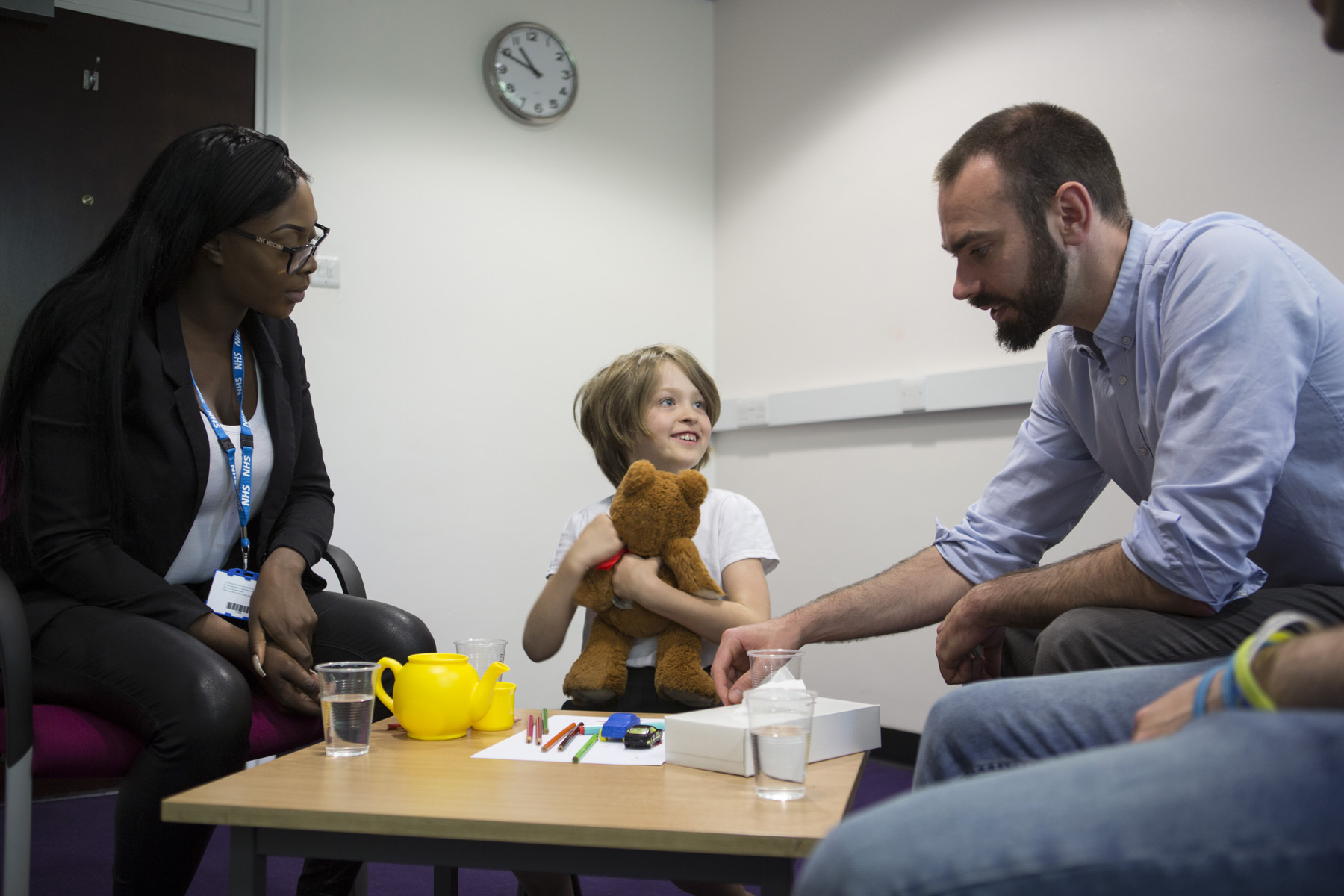
Blog
How we work with children and young people to help them and improve our services
I was talking with some medical students recently about the difference between working with children and young people compared with adults.
Several things were discussed; the different types of professional who make up a team, less of an emphasis on diagnosis and medication, the need to think systemically and to consider the young person’s development. But one of the most fundamental is the significance of building engagement with a young person, who might not necessarily want to be seen by a psychiatrist and may see the issue or situation at hand very differently from the adults around them. In short, the importance of paying attention and care to the perspective of the young person. This just so happens to be the theme of this year’s Childrens Mental Health Week: ‘My voice matters’.
The voice of many children and young people who are referred to the Tavistock and Portman, has often gone unheard
In my experience the voice of many children and young people who are referred to the Tavistock and Portman, has often gone unheard, despite the best efforts of caring adults around them. This may be for a variety of reasons – many have experienced adversity including trauma, discrimination, abuse, and neglect, leaving them mistrustful of adults. Others may have neurodevelopmental difficulties with social communication, accompanied by high levels of anxiety when interacting with others.
Children with these complex difficulties benefit from the support provided by skilled, compassionate professionals. Working here, I have seen how clinicians of all disciplines can help these children find their voice and develop their capacity to put their feelings into words – so that they are understood. The process begins with someone first helping them make sense of their own experience, or “put things together”, in the words of one of my child psychotherapy colleagues. It requires the patience of a long-term approach, and it has been a familiar thread running through the work of the Tavistock and Portman for over one hundred years.
Our services have been focusing on how to meaningfully include the voice of children and young people in all aspects of their care. This of course is a central pillar of the THRIVE framework that the Tavistock and Portman have developed in collaboration with the Anna Freud Centre. In the autism and learning disabilities service, my colleagues have written on the use of digital technology to facilitate shared decision making with children and young people with autism and learning disabilities, regarding their care.
We have also been working to involve children and young people in the development of our services. In this we benefit from students and trainees who bring fresh ideas, energy and the ability to engage young people in creative ways. Currently one of our trainees is embarking on a project to gather young peoples views on how best they would like to receive information regarding their autism diagnosis.
I’m sure there are countless other examples of such work throughout the Tavistock and Portman. Perhaps this week is therefore a moment to share and celebrate our efforts so far. But more importantly to reflect on what more we can do to – not only to support children and young people find their voices, but also seek out their views, perspectives and ideas on their care and our services. The voice of children and young people not only matters, it is essential for us to provide the best help we can for those most in need.
Find out more
Psychological therapies for autism and learning disabilities
We provide psychological therapies for autistic children, young adults and their families and for those with developmental learning disabilities.
